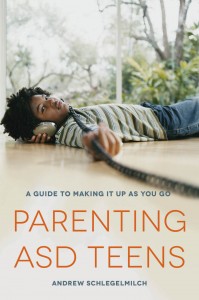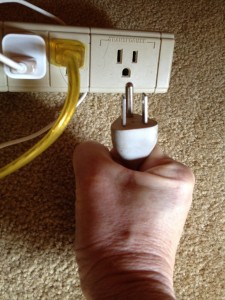Longer days bring more light to illuminate the doggie nose prints on my living room windows and all the crap I’ve been dumping in my garage and my office for the past year. So I’m into Spring Cleaning. Not just for the sake of clearing clutter and layers of dirt but attempting to gain a fresh perspective on my living space and my life.
When our kids suffer a setback, they could really use a fresh perspective. By helping them clear their emotional clutter we ease their suffering and encourage resilience.
To that point, I offer the following excerpt from my book, Teaching Kids to Be Good People
When they posted the cast list for our high school musical, The Music Man, I fully expected to read my name beside the lead role of Marion the Librarian.
I didn’t get the part. My best friend did.
Stunned, suddenly nauseous and disconnected from reality, I attempted to psychically morph the letters of her name into mine. At that critical moment, my magic powers failed. So did my ability to see the Bigger Picture (BP).
A parent’s life experience enables him or her to see beyond the child’s poor grade on the math test, the botched goal attempt, the argument with a friend, the break-up, the rejection letter from college. Teaching kids about the long view of life helps them develop good character traits. It also provides kids with needed encouragement and solace during tough times. But before we bore them with “This too shall pass,” give a kid in the throes of an upset a chance to vent or throw a self-pity party. Expressing emotion is healthy, but long-term dumping is not! What’s the difference?
Expressing feelings is about clearing emotional clutter. Talking helps people understand where we’re coming from, which helps us release pain, which gets us back into the positive place where we are best able to make good choices that respect our values and respect other people. A toddler screams because, without words, adults often don’t “get” what s/he’s upset about. Fourteen-year-olds usually scream less because they words, and if we patiently provide them with a safe place to communicate, the result is better understanding and healthier relationships.
Dumping is not about communication or understanding. More often, the goal of dumping is to complain, blame, paint oneself as a victim, and/or avoid responsibility for any part of the “bad stuff” that happened. Dumping reinforces bad habits (including the eternally off-putting “I’m a victim” attitude) and it rarely leads to healthier relationships, which is why it should never be encouraged. On top of that, dumping doesn’t help your child come to terms with what’s really going on.
From the dumpster: Your eighth-grade son comes home from a field trip in a foul mood. “Is something wrong?” you ask. He launches into a rant about: the “jerk” he had to sit next to on the bus, the terrible lunch you made, the tour guide who yelled at him, the fact that his best friend can’t take a joke, and how the girl he likes told everyone she thinks he’s gay. He finishes with “My life sucks!”
This is unadulterated dumping. Kids are in the middle of these storms sound desperate for help, but they don’t really want it. They just want to dump. Try to help them and they’ll turn on you.
Instead, we might respond like this: “Sounds like you’ve had a really bad day. When you’re a little calmer, I’d be happy to help you sort out your feelings so you can resolve some of this. Let me know when you’re ready to talk.”
We teach compassion by showing them compassion. In this case, it’s about truly listening and letting your child know you get it. Be sympathetic. Life’s unfair. That is, if “fair” means everyone gets dealt the same hand and is treated in the same way. Nope. Not fair. Acknowledge that. Be sincere. S/he’ll calm down, and when s/he does share your understanding of the Bigger Picture. Tell your own version of “I didn’t get the lead in Music Man”—everyone has one. Make sure you mention what you learned from yours. From that one, I learned setbacks are often bundled with opportunities. My best friend was shy and benefited from a chance to be a “star.” I’d already starred in several plays. What I needed was a chance to support the success of others, which I did as student chorus director. So it all worked out . . . perfectly.
Life is for learning. If we’re open and willing to study hard, we take what we learn in this moment and use it to move our kids and ourselves forward. That’s the Bigger Picture.
Now excuse me, gotta wash the kitchen floor.

















